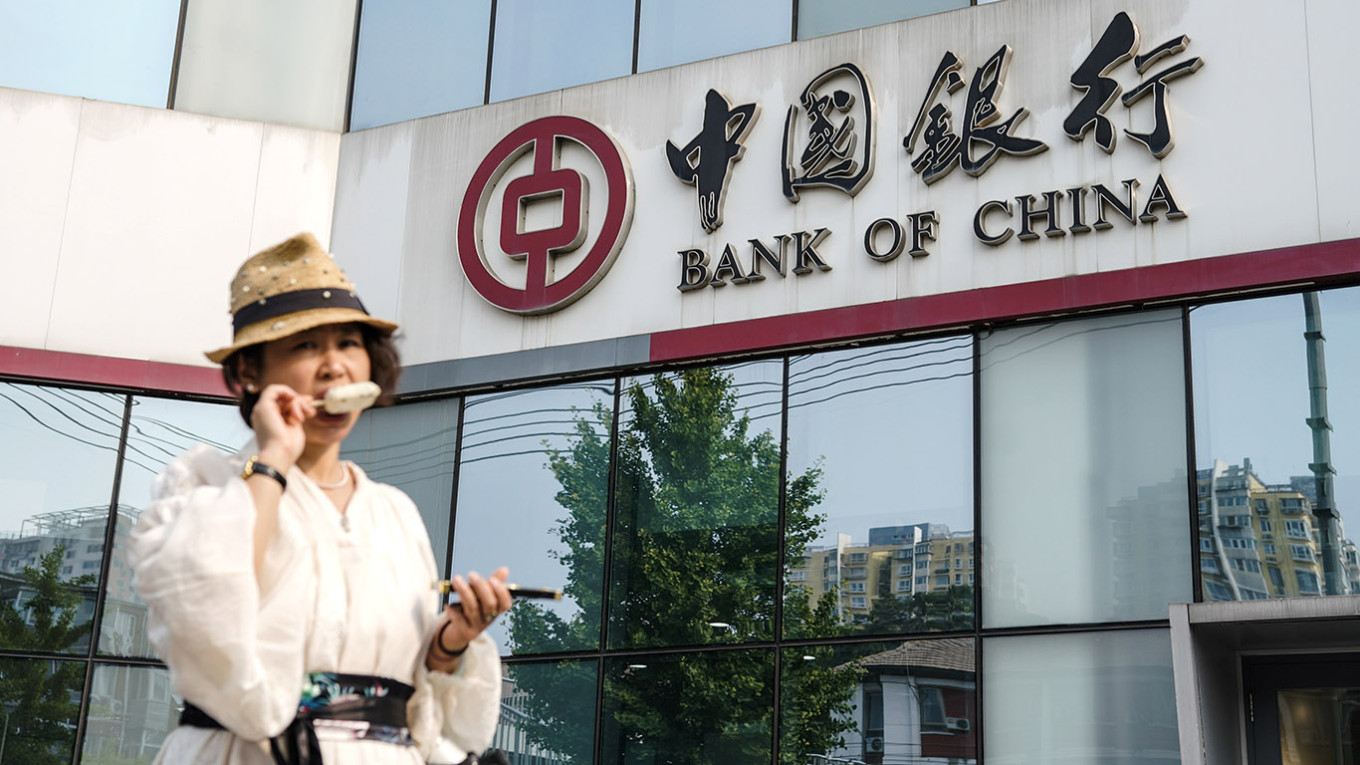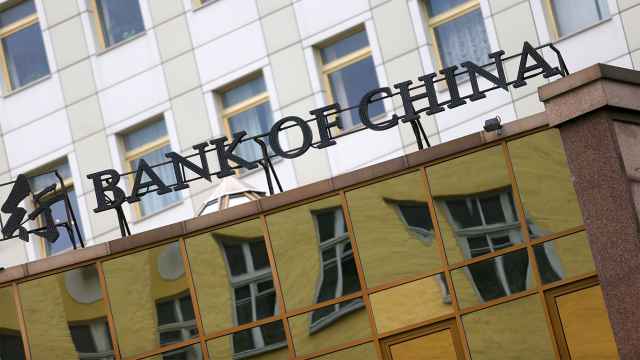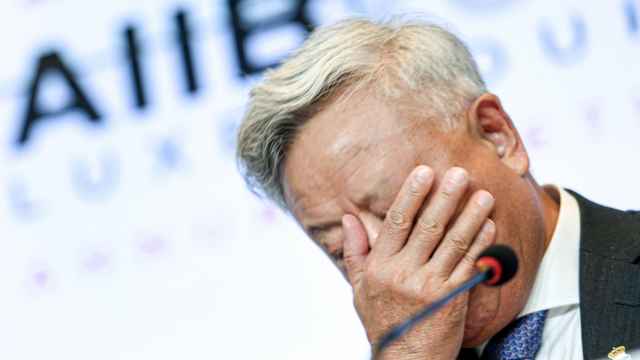The Russian division of the Bank of China has suspended operations with Russian lenders sanctioned by the United States in order to avoid being hit with secondary sanctions, the Kommersant business newspaper reported Monday, citing industry insiders.
The Bank of China’s Russian division — which specializes in yuan payments between Russia and China — is the second-largest Chinese banking subsidiary in the country with 592.4 billion rubles ($6.7 billion) in assets as of spring 2024, according to Kommersant.
Experts who spoke to the newspaper said the lender’s decision to suspend payments with sanctioned local banks would likely increase fraud risks given the subsequent shift to opaque intermediaries to process payments between Russian and Chinese entities.
“This is not very good news for the Russian market,” an anonymous industry insider was quoted as saying by Kommersant. “There will be additional costs both in time and the price of processing payments.”
“But the most important problem is that payments go beyond the banking sector, resulting in the state having less control,” the source added.
Kommersant’s report comes two weeks after the U.S. widened sanctions against Russia to include targeting foreign financial institutions that continue to do business with any individuals or entities sanctioned by Washington.
The Bank of China did not respond to a request for comment, the newspaper said.
Reuters reported last week that an alternative payment channel for business between China and Russia was set up after President Vladimir Putin visited Beijing in May.
According to that report, the new payment scheme involves smaller regional banks located near the Russian-Chinese border. The workaround will allow Moscow to “fly below the U.S. sanctions radar” for a time, Reuters said, as the U.S. Treasury Department reportedly works to target smaller banks that help the Russian military.
China has become Russia’s most important economic partner since the Kremlin launched its full-scale invasion of Ukraine in February 2022, with trade surging between the two countries.
The Chinese yuan is now used to settle more than a third of all Russian exports, up from 0.4% before the full-scale invasion, according to Russia’s Central Bank.
A Message from The Moscow Times:
Dear readers,
We are facing unprecedented challenges. Russia's Prosecutor General's Office has designated The Moscow Times as an "undesirable" organization, criminalizing our work and putting our staff at risk of prosecution. This follows our earlier unjust labeling as a "foreign agent."
These actions are direct attempts to silence independent journalism in Russia. The authorities claim our work "discredits the decisions of the Russian leadership." We see things differently: we strive to provide accurate, unbiased reporting on Russia.
We, the journalists of The Moscow Times, refuse to be silenced. But to continue our work, we need your help.
Your support, no matter how small, makes a world of difference. If you can, please support us monthly starting from just $2. It's quick to set up, and every contribution makes a significant impact.
By supporting The Moscow Times, you're defending open, independent journalism in the face of repression. Thank you for standing with us.
Remind me later.






